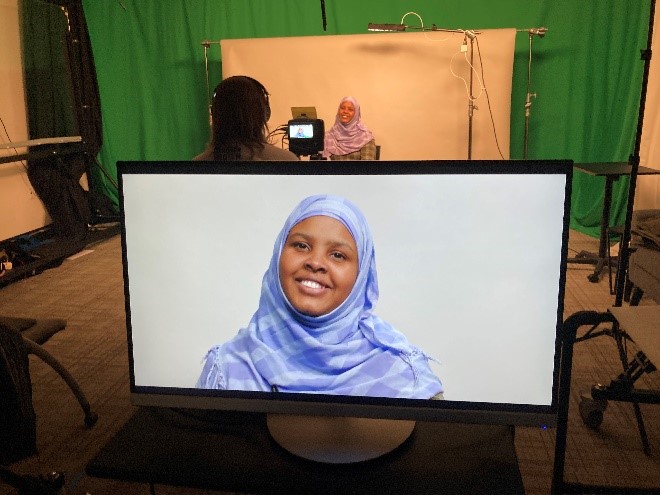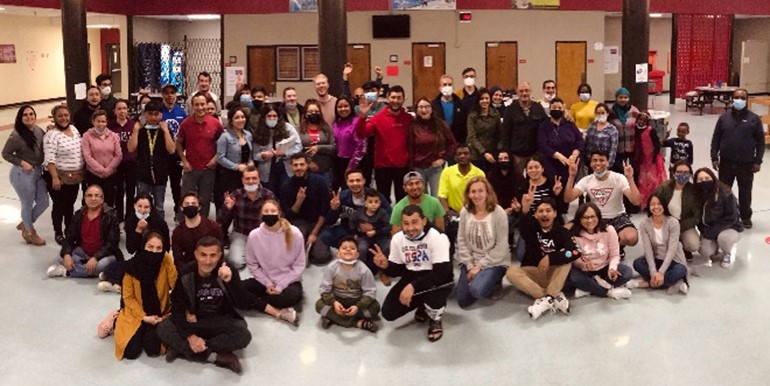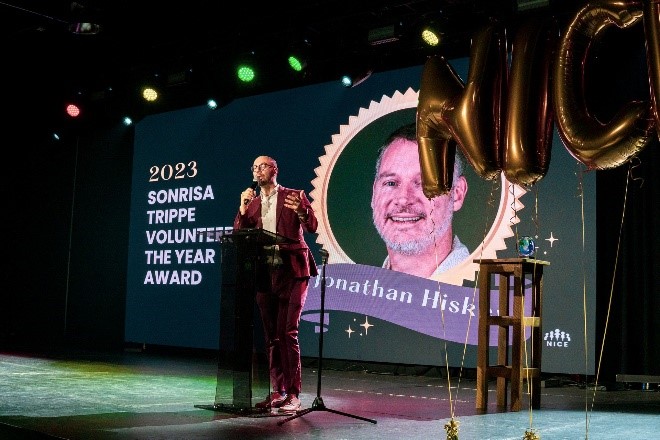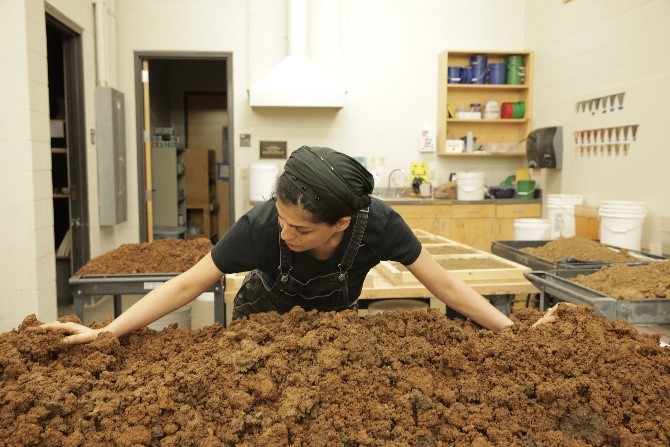Vanderbilt recently supported the Nashville International Center for Empowerment’s “Nicest Night in Nashville,” an event celebrating immigrant and refugee communities while raising funds for housing, employment, education and other resources for newly arrived individuals and families. The evening premiered a special multimedia partnership between NICE, a nonprofit that provides resources for refugees, and Vanderbilt’s Jonathan Rattner, Stacy Curry-Johnson, Natalie Robbins and their respective teams. Rattner is an associate professor of cinema and media arts, and Curry-Johnson is a librarian for geospatial data and systems and lecturer in geographic information systems and remote sensing. Both work on the Southern Refuge project, a collaborative interactive art project with NICE that highlights the stories of Nashville’s refugees while digitally tracing their journeys through interactive GIS maps.

According to Rattner, the project director, the goal of the project is for audiences to “appreciate the magnitude, diversity and complexity of global forced migration and connect it to their own experiences.” Rattner and his team have conducted 10 interviews with NICE clients and staff, two of which are featured on the project’s website with the interactive StoryMaps created by Curry-Johnson and Natalie Robbins, program manager for the Vanderbilt Institute for Spatial Research. A prototype featuring a mobile app version of the longer-range project is available for viewing. Rattner is currently seeking funding from the National Endowment for the Humanities to support the continuation of the project. Along with Rattner, Curry-Johnson and Robbins, the team includes Vanderbilt students Michael Carlson, Maggie Victory, Devin Laye, Elena Kim and Annabelle Baily.
Nashville has a long history of welcoming refugees who come to call the city home. According to NICE, over 110 million people are currently displaced from their homes. Over the next year, the United States will welcome 125,000 refugees from around the world. Five hundred of these anticipated refugees will find their new homes in Nashville. In 2022, Nashville welcomed 336 refugees from over 19 countries, with a large portion of people arriving from Afghanistan, Congo, Venezuela and Syria. As refugees resettle, they are presented with practical challenges like language barriers and adapting to a new environment and culture.

Founded in 2005 by a group of Sudanese refugees, NICE provides new refugees in Nashville the resources they need to become self-sufficient. When displaced people from around the world come to Nashville, NICE is one of three agencies that support resettlement efforts through community building and programs focused on education and employment. Vanderbilt students, staff and faculty have engaged with NICE since its founding, and the university is a longtime supporter of the organization through the Community Impact Fund.
“Together with NICE, we are building bridges of understanding and support for the diverse experiences and stories that enrich our city,” said Kathleen Fuchs Hritz, senior director of community relations at Vanderbilt. “Vanderbilt is honored to contribute to NICE’s mission, creating opportunities for education, employment and community connection with new Nashvillians.”

The Nicest Night in Nashville also celebrated Professor of Political Science Jonathan Hiskey, who received the Sonrisa Trippe Volunteer of the Year award for his more than six years of service on NICE’s adult education team. Each spring, Hiskey teaches a course that focuses on student engagement with the immigrant communities of Nashville. The class culminates with a “cultural exchange night,” where students and adult English Learners from NICE share a meal and learn about each other’s cultures.
Raheleh Filsoofi, assistant professor of art, is also working alongside NICE and their clients. Filsoofi recently received the Tennessee Arts Commission grant for her project with refugees, The Resonance of the Lands: Finding Identity and Place in Tennessee Through Clay, Music and Community. She extracted clay from various locations in Nashville, including three locations on Vanderbilt’s campus, to create 25 clay percussion instruments inspired by the Middle Eastern clay darbuka drum. “The project aims to create a space for refugees, but also immigrant community members of Nashville,” Filsoofi said. Audiences can acknowledge a connection to the Nashville land while coming together as an empowered community through interactive workshops and performances.

Along with NICE, Catholic Charities, also offers resettlement support for refugees in the Nashville area and coordinates Tennessee’s statewide refugee resettlement efforts. Vanderbilt Community Relations has a long history of supporting both entities through the Community Impact Fund, while facilitating opportunities for students, faculty and staff to engage with these organizations and the new Americans they serve.